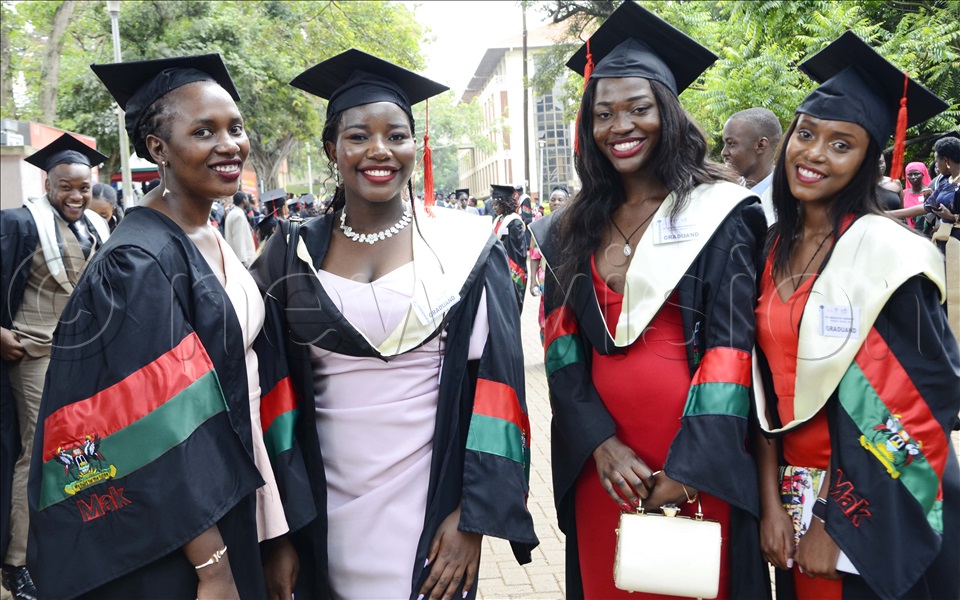Kellen Owente
Fatumah Kiweweesi, 26, dropped out of university in her first year of study in 2018 because her mother failed to raise enough money to continue funding her education.
Kiweweesi, who was pursuing a bachelor’s in leisure and hospitality at Makerere University Business School, has over the past five years been working as a waitress in restaurants in Kampala to raise money to return to the university to complete her course in vain.
So, when the Higher Education Student’s Fund Board (HESFB) announced recently it was opening up the loan scheme to students seeking to do tourism and hospitality courses, she knew the decision presented an opportunity for her to go back to the university to pursue her dream course.
“I have always loved tourism and hospitality. This course is a perfect one for my personality because I love to travel and showcase to people how beautiful my country is,” Kiweweesi, who is one of the students who have already applied for student loans this year, says.
Uganda set up the loan scheme in 2014 to provide loans to students pursuing science courses in universities and other higher institutions of learning. Tourism and hospitality courses are the first humanities programmes to be added to the list of courses to be considered for loans under this scheme. But why?
Manpower shortage
Michael Wanyama, the HESFB executive director, says hospitality and tourism have become vital sectors, and their growing contribution to the country’s economic development cannot be ignored.
“Hospitality is deep-rooted in the culture of Ugandans. We have the reputation of being Africa’s friendliest country which stems from our tradition,” he adds. “The third National Development Plan (NPDIII) aspires to make Uganda one of the top tourism destinations in Africa by 2025,”
The plan identifies tourism as one of the areas with the potential to continue contributing substantially to economic development. But the inadequate and under-skilled manpower is cited as an obstacle to the growth of the tourism industry.
“The quality of personnel available to work in the tourism sector is generally low,” the plan adds. “The huge skills gaps also limit creativity and any meaningful innovation to add value to the existing products,”
Wamanya says they want to change this by facilitating people like Kiweweesi to build careers in tourism and hospitality. He adds that tourism and hospitality industries have the potential to potential to contribute to poverty reduction through foreign exchange earnings, job creation and business opportunities and benefits to other sectors like transport and agriculture.
According to the Uganda Tourism Board (UTB), tourist arrivals in the country grew from 205,000 in 2001 to over 1.5 million in 2018. In 2019, before the outbreak of COVID-19, the country earned over $1.6b from tourism, an increase from $1.45b in 2017, the board says. Uganda hopes to raise the number of people employed by the tourism industry from 667,600 to 1,100,000 under NDP III by 2025.
Imported hotel workers
It is hoped that providing loans to students seeking to build careers in tourism and hospitality, according to Wanyama, will help the country create a competitive and skilled workforce to take up employment opportunities in these spaces.
“There are not many Ugandans working in five-star hotels and many of these chefs and waiters and waitresses working in those hotels are imported from other countries. This can only mean one thing; we do not have skilled local labour,” he argues.
Wanyama says the decision to give loans to tourism and hospitality students was also informed by the desire to build the workforce that would further monetise the country’s beautiful flora and fauna, including the world’s rare animal and bird species, and cultural and historical heritage.
Susan Muhwezi, the president of the Uganda Hotel Owners Association, says expanding the loan scheme to cover the tourism and hospitality courses would contribute to improving the quality of the workforce in these sectors.
“If you compare our country to our neighbouring countries, let’s say, Kenya, Uganda is not doing well in terms of skills in these sectors yet tourism is the biggest foreign exchange earner,” she notes. “I urge young people to get these loans. The future is bright for these sectors,”
In 2017, tourism’s direct contribution to Gross Domestic Product was nearly 3%, and when its broader effects, including investments in hospitality projects, and earnings were factored in, it increased to 7.3%. Tourism, which is recovering from the effects of COVID-19, is the country’s foreign exchange earner.
Professional skills
Currently, Muhwezi adds that some Ugandans employed in the tourism and hospitality sectors are paid poorly due to a lack of the requisite skills and competencies. This, she says, partly explains why some of the individuals holding managerial positions are non-Ugandans. According to the hotel owners’ association, there are around 3,800 hotels in Uganda, with the hospitality industry employing about 450,000 people.
It is also expected that, if more Ugandans receive professional training in these sectors, investors in tourism and hospitality would be encouraged to hire indigenous people and reduce the costs involved in hiring expatriates.
“Proper training is important because in the future even tourist guides will be ranked according to their expertise and skills. Their salaries will be determined by their ranking,” Gesa Simplicious, a senior public relations officer at UTB, says. “With this loan scheme, guides could be encouraged to get training,”
Amos Wakesa, the director of Great Lakes Safaris, a travel and tour company, says there is a need for more educated people to join the tourism and hospitality sector. “Some hotels in Uganda are filled with people who did not complete school. They lack professional skills,” he adds.
The NPDIII notes that obstacles such as “unhospitable” treatment of tourists, inadequate skilled personnel and limited access to tourism-related information continue to hurt the sector.
In addition, the reception of tourists at airports and border entry points is “not market-friendly” which leaves tourists feeling unwelcome, according to the National Planning Authority.
Bob Nuwagira, the senior communications officer at HESFB, says the loan scheme could address part of the problem by increasing access to professional training.
Statistics from the education ministry show that enrolment at higher institutions of learners increased from 254,043 students in 2015 to 275,254 in 2019 partly due to the introduction of the loans scheme. Over 12,700 undergraduate degree and diploma students have been offered loans under this scheme so far, according to HESFB. Around 4000 of these are female students.
Kiweweesi says she is looking forward to getting the student loan so she can return to the university to complete her course. “I cannot wait to get back to school. I want to explore the beautiful scenery of her motherland, Uganda and contribute to the development of the tourism and hospitality industries,”









Leave feedback about this